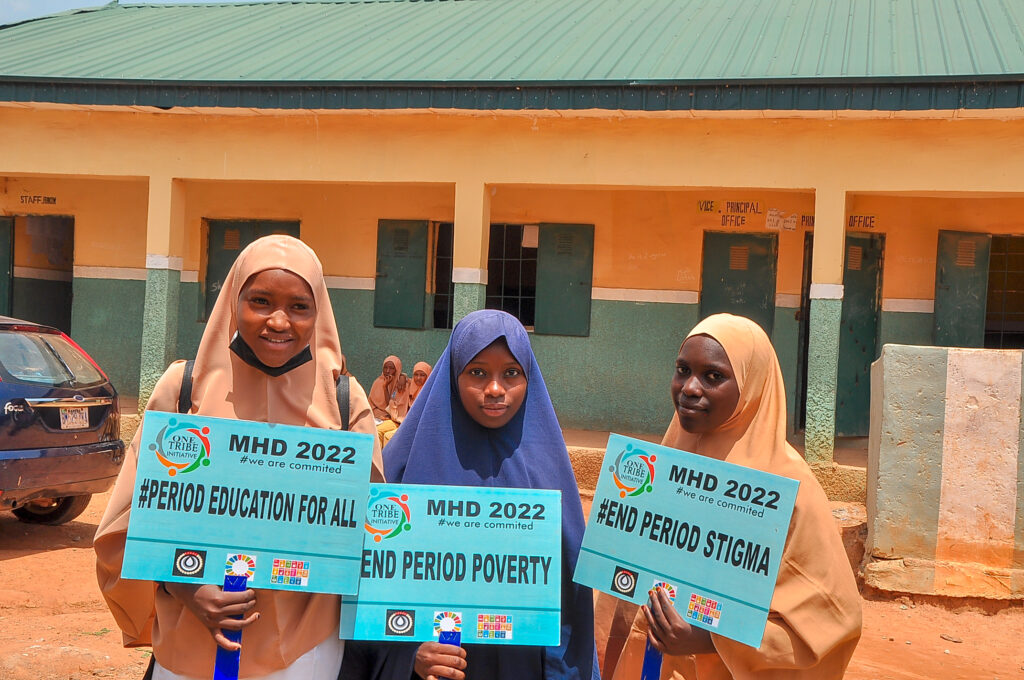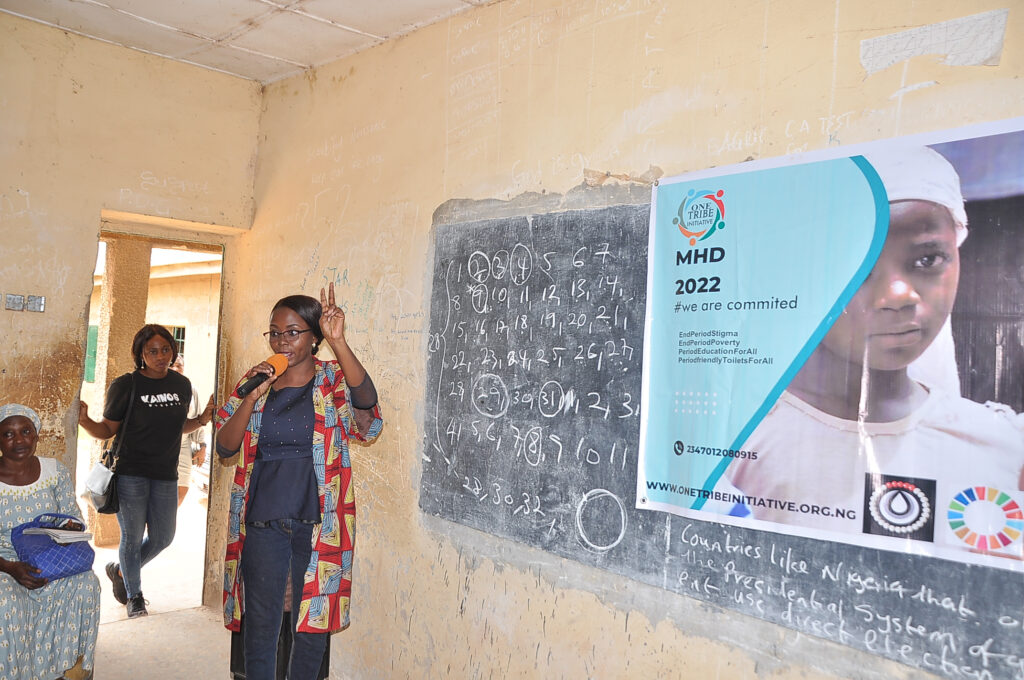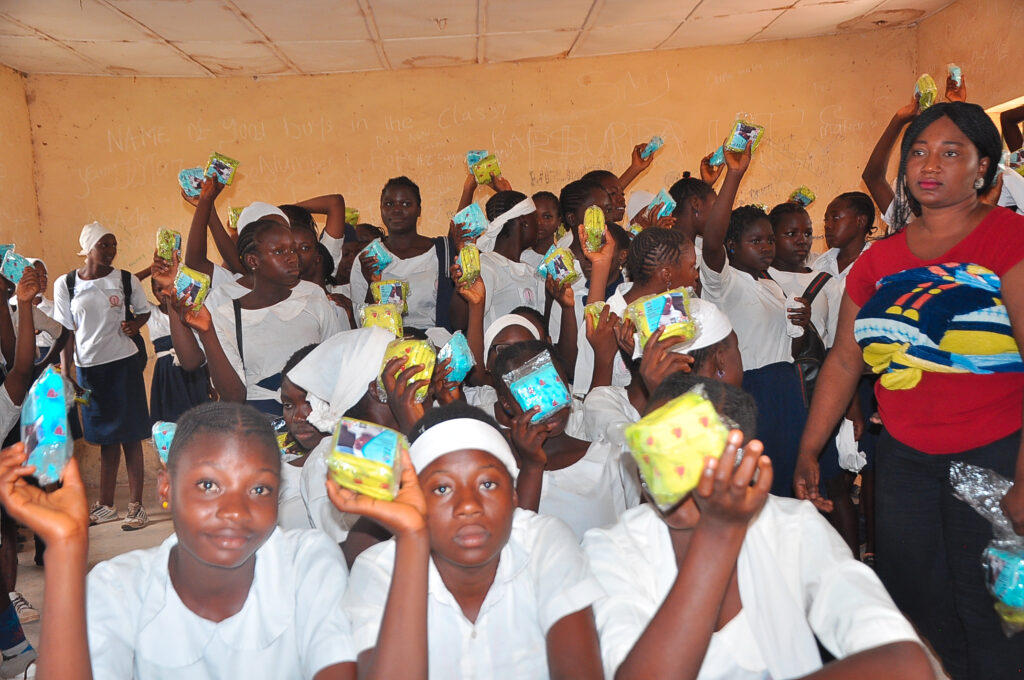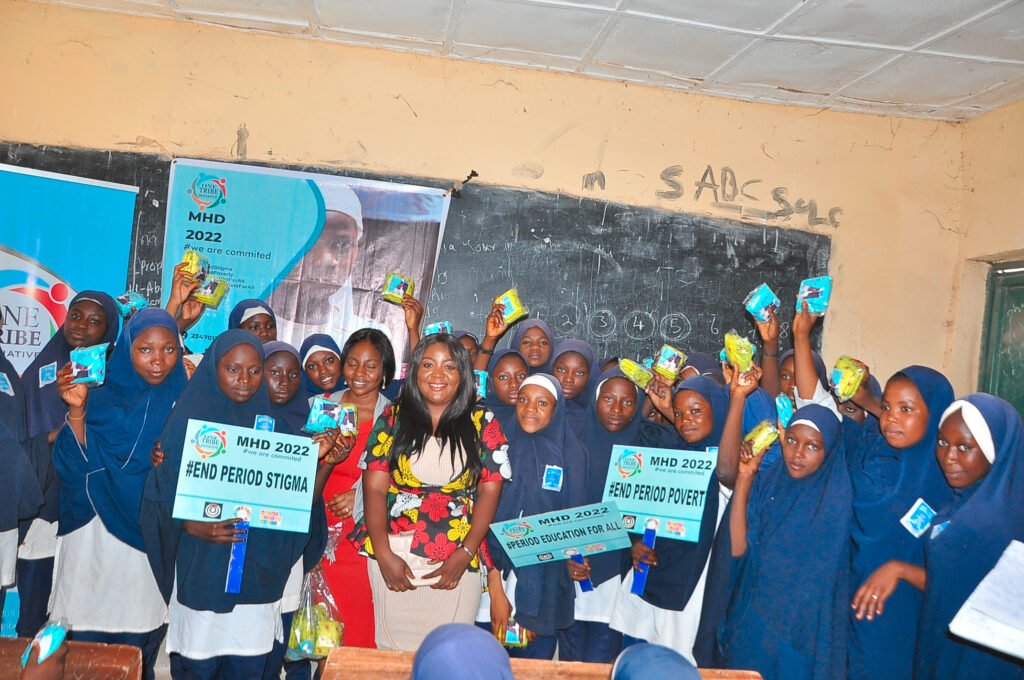Introduction
Menstrual Hygiene Day is an annual global event observed on May 28th to raise awareness about the challenges faced by girls and women regarding menstrual hygiene management. In 2022, One Tribe Initiative, a non-governmental organization (NGO) that promotes gender equality and empowerment, marked the Menstrual Hygiene Day by conducting a hygiene campaign for girls in Kaduna and Abuja, Nigeria. The campaign aimed to address the issue of menstrual hygiene and its impact on the physical and mental health, education, and dignity of girls in underserved communities. The campaign focused on providing menstrual pads and hygiene education to girls in schools and IDP camps.
Activities
The Menstrual Hygiene Day campaign by One Tribe Initiative consisted of the following activities:
- Planning and preparation: The team of One Tribe Initiative planned the campaign several weeks in advance by identifying the target schools and IDP camps, developing the curriculum and materials for hygiene education, and sourcing the menstrual pads and other supplies needed for the campaign. The team also mobilized volunteers and partners to support the campaign and ensure its success.
- Visiting schools and IDP camp: On May 28th, the team of One Tribe Initiative visited two schools in Kaduna and an IDP camp in Abuja to conduct the hygiene campaign. The team included trained facilitators, volunteers, and partners who interacted with the girls and provided them with hygiene education and support.
- Hygiene education and pad distribution: During the campaign, the girls were given a talk on menstrual hygiene management, which included information on the menstrual cycle, how to use and dispose of pads properly, and how to manage menstrual pain and discomfort. The facilitators also answered the girls’ questions and dispelled some of the myths and misconceptions about menstruation.
In addition, the team distributed about 1000 menstrual pads to the girls and demonstrated how to use them correctly. The pads were donated by One Tribe Initiative and other partners who supported the campaign. The beneficiaries expressed gratitude for the pads, as many of them could not afford to buy them regularly and often resorted to unhygienic and unsafe alternatives






